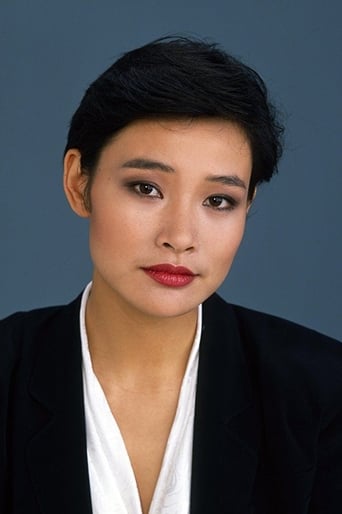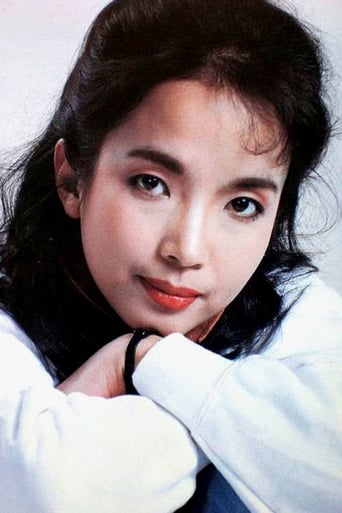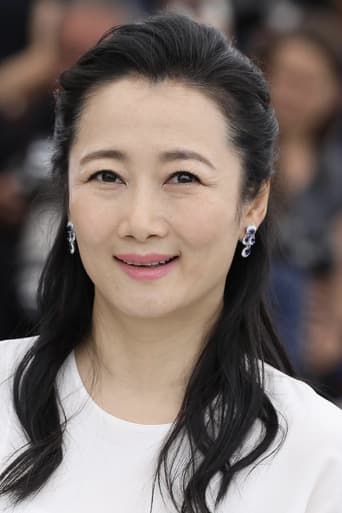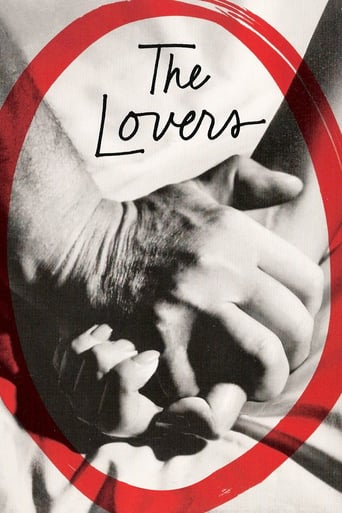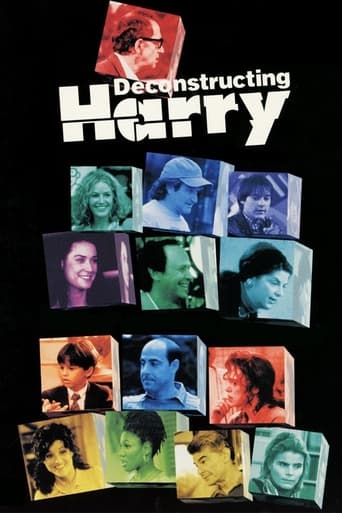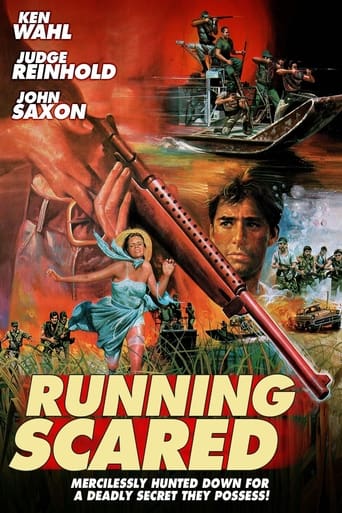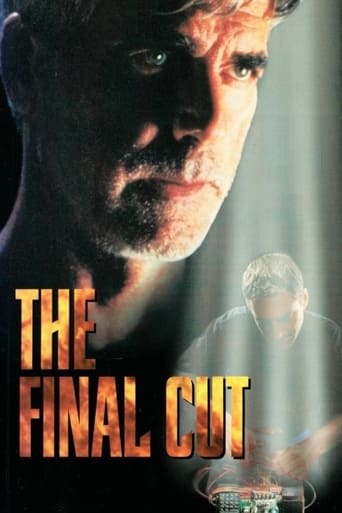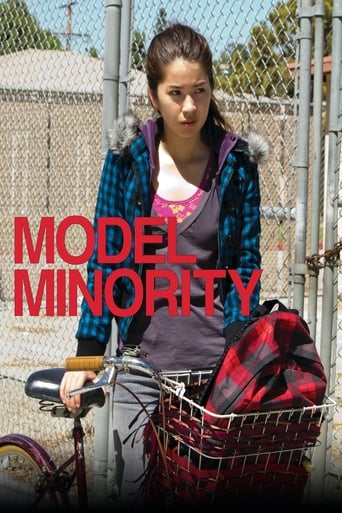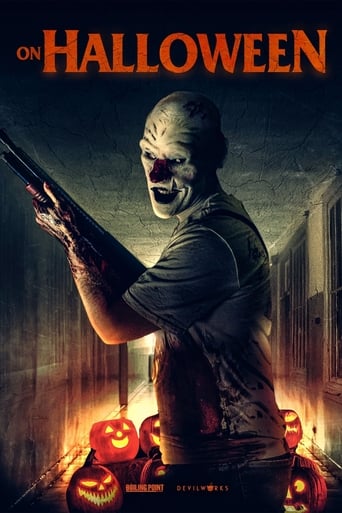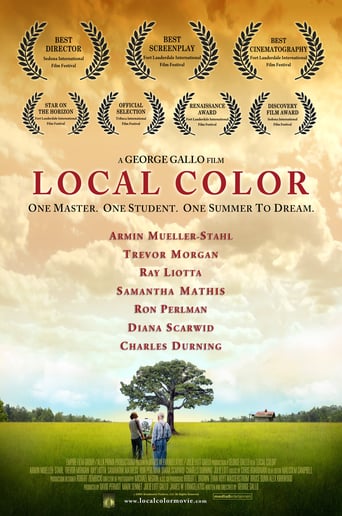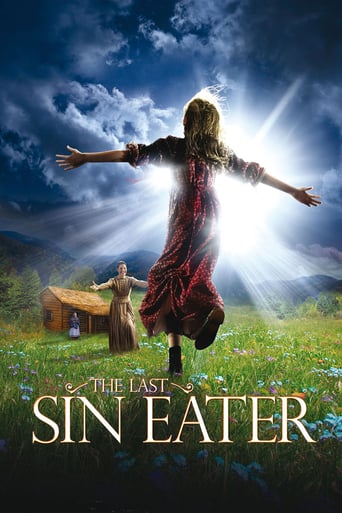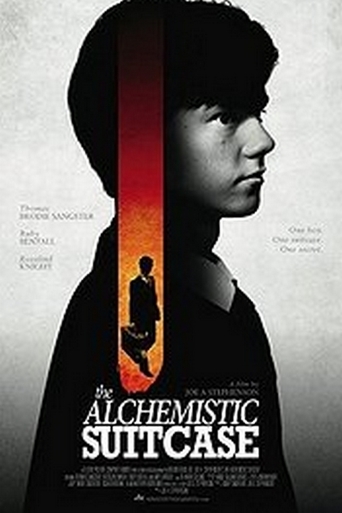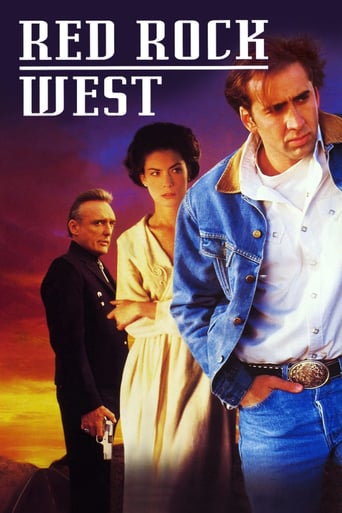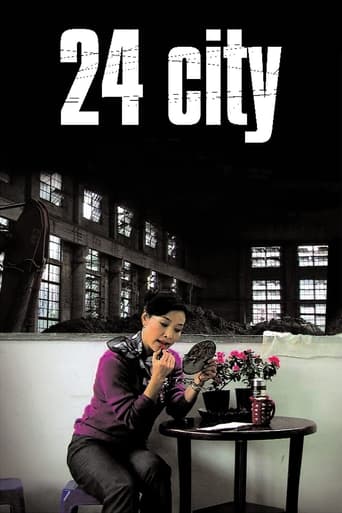
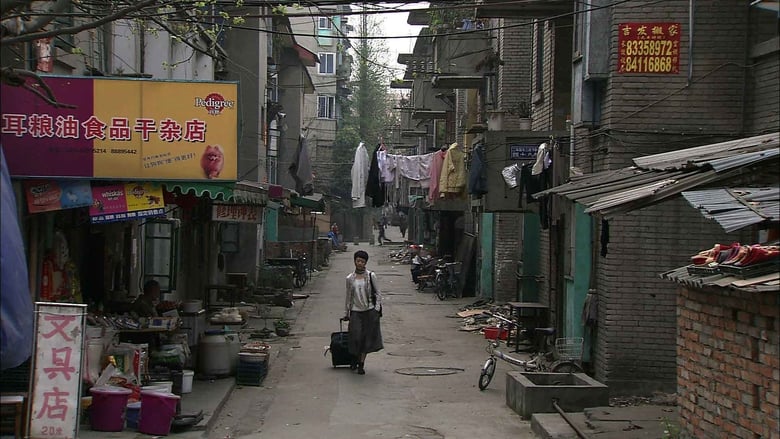
24 City (2008)
24 City chronicles the dramatic closing of a once-prosperous state-owned factory in Chengdu, southwest China and its conversion into a sprawling luxury apartment complex. Three generations, eight characters : old workers, factory executives and yuppies, their stories melt into the History of China.
Watch Trailer
Cast


Similar titles
Reviews
That DVD design looked as if it was about a japan military story, because their military flag looks similar.This film is like an authentic documentary. The few famous actors appeared in it did a good job. Even though you know who they are in real life, but they acted as if they were really part of that factory.And I loved it when Joan chen spoke shanghai dialect, it is rare for a Chinese film to use shanghai dialect. It is sort of forbidden by the Chinese communist party. If hong kong was a part of China since 1949, then there won't be any cantonese films at all, because the CCP forces every film to be made in mandarin Chinese only.I also liked it when Joan chen spoke her mandarin with a shanghai accent. she can speak perfect mandarin, but she did it to make her role more authentic.Time is changing, I believe what those people said in this film really reflect what is happening to those factory workers who were laid off.
Zhang Ke Jai has(at least to me) grown substantially since "The World", able to leave some of the melodrama behind and let his characters and the landscapes speak for themselves. "24 City" is a beautiful film, both relevant and moving in the ways "Up In The Air" wishes it were.A factory in Chengdu, China that has been in operation for generations is being closed down to make room for a upscale high rise apartment building called "24 City" ironically named after a poem about harmony. We follow a series of interviews with former factory workers about their lives in and around the factory.Some of the interviews could have been shortened or illustrated visually instead of having us just watching talking heads speaking over silence, but that is my personal preference.It could be argued, by not re-creating their lives Jai gives his subjects a sense of dignity, and creates an intimacy between them and the viewer that would be otherwise lost. For the most part I would agree, though in honesty, I did get anxious more than a few times during some of these discussions. Jai's subjects at first seemed to be almost rambling inconsequentially, but as the film goes on, their statements become enmeshed in each other and the film as a whole, and intricately articulate how the factory for generations was their entire world, romantically, socially, philosophically, and culturally.Some of the workers had their first fights there, their first loves, some moved their whole families on the promise of work, while others left their families behind, and suddenly this community which has sustained them all this time has disappeared, moved by forces beyond their control. Part of the film is documentary, but some of the interviews are "fictional" and feature actors.I had trouble telling the difference between those who were actors and who were actual workers, but the mixture between the authentic and the dramatic only serves to highlight the contrast between the promise of worker's solidarity and justice and the realities of changing economic priorities. Jai's "The World" offered us the best metaphor for the globalized melancholic that I've yet to see, that of an amusement park masquerading as the greatest architectural achievements of humanity, while those who toil in it are increasingly alienated from any sense of "authentic" culture, themselves, and each other. That film itself, however was not as compelling as it's ideas.In many ways "24 City" and so I am told Jai's similar, "Still Life" continue this series on the changing face of China, and the "real" people caught up in this global gentrification. What made me look at "24 City" as something other than just a clever polemic was a baffling scene of a girl skating to a soft, bubbly, trance like electronic song. The girl skates in circles, and the music plays and we just observe her, and the song continues, as the camera floats off looking across the city and the mammoth building rising up into the skyline. I don't know what if any purpose this scene had to the rest of the film, but it was lovely. Equally startling were the huge crowds of workers, by the hundreds in the film's first scenes, that are as overwhelming as the CG throngs of countless soldiers and orcs from "The Lord Of The Rings" epic battle-scapes. In those moments Zhang makes his cinematic eye, rival and better his(at least for me)binding interest in social realism.Realism especially of the socially progressive variety is not my cup of tea (to put a borderline pathological aversion mildly), but "24 City" made, if not a believer, than a fascinated viewer out of me. If globalization has to be "hot button" of contemporary art, if there must be sad-sack post-modernist which stylistically bite the hands that feed them, if the classical Marxist themes of alienation, class, and gentrification must persist on into the next decade, we could all do worse than to see them filtered through Zhang's warm humanism (another term I would usually avoid).It's not a thrill a minute, and there is no George Clooney smirking to enjoy, but "24 City" is rewarding, intimate, and oddly sensual, which few politicized movies, and even fewer documentaries, seem capable of doing these days. This is the first Jai I enjoyed, and makes me interested to visit the rest of the oeuvre.
This review is primarily in response to Barry Freed's, whose take on the film is so wildly different from mine it makes me wonder if we saw the same movie.I LOVED this movie. I think the quasi-documentary style is wholly winning and adds a lot to the story. As far as defending Jia's decision not to do a "traditional" documentary, I guess I just have to give him the benefit of the doubt. If he had wanted to do a "traditional" documentary, then he would have done so. I feel that Jia is an accomplished enough artist that I can assume he has an instinctive sense of what will best serve a particular story. Clearly, in this instance, he decided on a fact/fiction "blend", and to my mind, he made the right call.While watching this, I couldn't help but think of Werner Herzog and his theory of "ecstatic truth" ("I know that by making a clear distinction between "fact" and "truth" in my films, I'm able to penetrate into a deeper stratum of truth that most films never attain. This deep inner truth inherent in cinema can be discovered only by not being bureaucratically, politically, and mathematically correct." - W. Herzog). While I'm not (necessarily) making a comparison between Zhang-ke and Herzog, I feel that they are very much after the same thing. Whether an essential truth can be best conveyed using actors or non-actors, using a documentary or drama approach, etc. are questions that both directors obviously struggle with, and I feel that they have come to similar conclusions. They (to my mind) have opted to fuse the two approaches, in an attempt to remove intellectual and emotional barriers between the people on-screen and the people in the audience. And more often than not, that approach works, and works in a very powerful way.Finally, I thought the performances, without exception, were utterly devastating and mind-blowing. I don't know what Jia does to his actors to get performances of that caliber, but whatever it is, he needs to keep it up. I think this is an excellent companion-piece to "Still Life", and a beautiful addition to his body of work. Masterful.
Chris Knipp's review of "24 City" (this film's English title) contains many useful details, which I need not recapitulate. It also contains some misstatements, which I would like to correct, and omits the sort of political insights which this interested observer of Chinese politics since the late 1950s would like to supply.Among the misstatements: to say that the "dim-witted" (i.e. semi-senile) retired worker who receives a long-delayed visit from his former apprentice was a "master of the factory" gives an inaccurate impression. The man was the head of a production team, not of the entire factory. While the film certainly is quite slow-moving, it is an exaggeration to say that "one person or a group look(ed) silently into the camera for a minute or so." I also don't agree that the film tells a "tale of repression," not in the true political sense of the word, anyway. Had the workers waged a mass struggle to convert their factory to some other use or, at least, to move their jobs to some other site, then we might have seen some actual repression (attacks by cops, arrests etc.) — if the director had the guts to show it to us, that is. Finally, where did Chris get "Later (Factory) 420 was retooled to produce peacetime products such as washing machines."? Neither my wife nor I noticed any such comment in the film.The scene mentioned above between former master and apprentice was extremely touching. But were these men the actual workers or were they actors? As soon as I became aware that actors were delivering some of the "interviews," my opinion of this film plummeted. Chris accepted this as necessary: "Actors are used for some of the people because Jia interviewed 130 people and had to create composites." "Had to"? Were the originals not photogenic enough? Did they not tell their stories engagingly enough? Or was the director so inept that he didn't get some of the interviews on film? Later, though, Chris said that this method "undercut the sense of realism." And how! The New York Film Festival's (NYFF) introduction was similarly divided about whether the film was more documentary or more fictional. "24 City's" most blatantly phony "testimony" was that of "Little Flower," a mature female "factory worker," played by the widely-known, glamorous actress Joan Chen. When "Little Flower" relates her unlucky-in-love history, she mentions that her coworkers said she looked just like the actress Joan Chen! Cute, no? The fact that director JiaZhangKe (the format in which his name appears in the film's credits) wasted time and effort on this completely dispensable item reflects the weakness underlying his whole approach to the project.Chris said that the director's previous work "seems to have given way (here) to adverts for capitalism." It seemed to me that the director evinced a significant ideological dilemma: either he doesn't know exactly where he stands or, if he does, he doesn't have the guts to tell us. The film contains several HINTS of nostalgia for the early years of the People's Republic, including the description by a long-time plant security official of Factory 420's important role in producing jet engines for Chinese and North Korean military aircraft during the "struggle against U.S. Imperialism" (i.e. what the U.S. calls the "Korean War"). Imagine — there still are people in China who are capable of using such terminology! Then there is the brief scene of a group of middle-aged women (workers from Factory 420?) singing "The Internationale" (which, contrary to the NYFF's introduction, is NOT a "pop song"). Who-when-where-why? Sorry, the director doesn't bother to provide such details.What the director DOES NOT tell us is at the heart of what is wrong with this film. During the Q&A session after the film's NYFF premier, JiaZhangKe mentioned that the destruction of Factory 420 resulted in the loss of their jobs by about 30,000 workers. Why the hell didn't he put this little detail into the film? Were these workers offered other jobs or retraining for such? Did they receive severance pay and if so, how much? Did they receive unemployment compensation and, if so, how much and for how long? Did they lose their factory-associated housing, medical care and schooling for their children? Such information would have been useful to those interested in the sociology and political economy of contemporary China but providing it was not on JiaZhangKe's agenda.What was JiaZhangKe's purpose in showing us the visit by the stylish young professional shopper to her mother's factory, where she sees for the first time the miserable, oppressive nature of her mother's job and weeps? Was he simply promoting sympathy for the older generation or did he think that the "transition to a market economy" will eliminate the need for such degrading labor? (A close look at the vast number of numbingly repetitive jobs in the highly capitalized modern factories of the "world's workshop" would dispel any such illusion.)Why does "24 City" only contain interviews with workers laid off from Factory 420 in the 1990s and earlier? Why no interviews with ANY of the thousands being laid off as Factory 420 is torn down to make room for a five-star hotel? Might such workers have been too angry? Might they have made intemperate comments about China's rulers? The cowardliness involved in this deficiency is breathtaking! JiaZhangKe poses as sympathetic to those who suffer from capitalist development but doesn't want to go too far in that direction because he is not completely opposed to this process. Nor does he want to cut off his access to the lucrative capitalist world film market. His invocation of the mystical, reactionary poetry of W. B. Yeats is but one signal of his orientation to that market and of his willingness to "go along."Barry Freed


